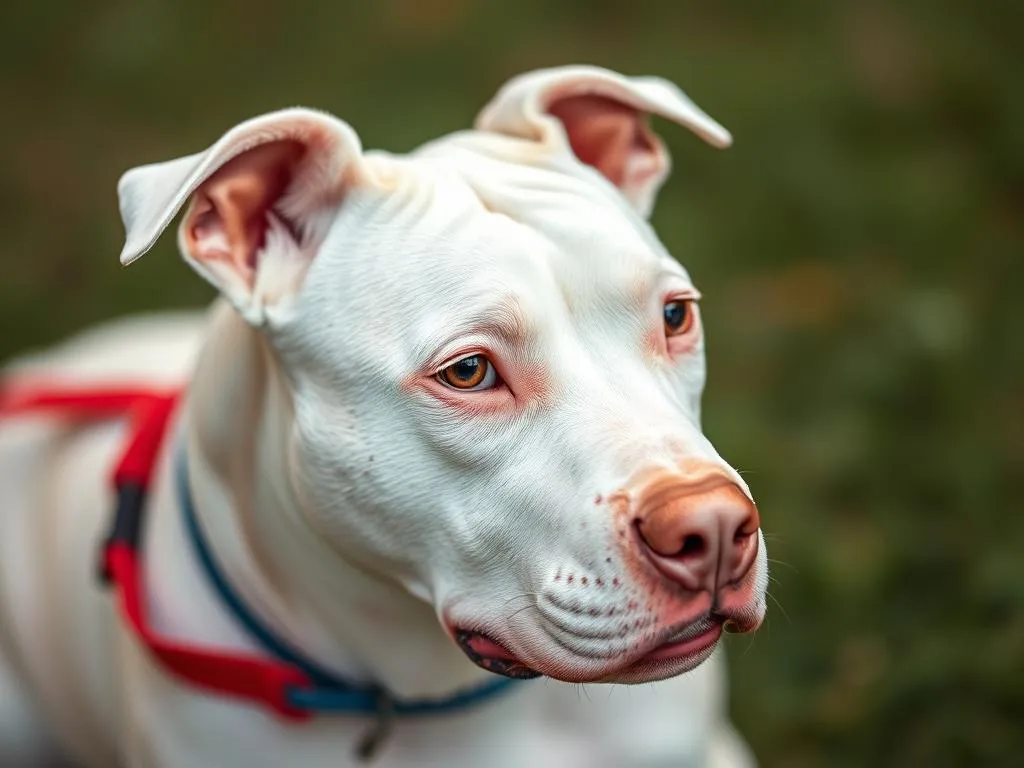
Introduction
Dog breeds encompass a wide variety of canines, each with unique traits and characteristics. Understanding these breed characteristics is vital for potential dog owners to make informed decisions about which breed best fits their lifestyle and needs. Among the numerous breeds, the white pitbull stands out due to its striking appearance and loyal demeanor.
The white pitbull is not just a visually appealing variation of the pitbull breed; it carries significance in terms of genetics, temperament, and care requirements. This article aims to provide a comprehensive overview of the white pitbull, delving into its history, traits, care needs, and more, helping prospective owners appreciate what this breed has to offer.
Understanding the Pitbull Breed
History of the Pitbull
The origins of the pitbull can be traced back to the early 19th century in England, where they were bred for bull-baiting and later as farm dogs. The breed was developed from a mix of bulldogs and terriers, combining the strength of the bulldog with the agility and intelligence of terriers. As bull-baiting was outlawed, these dogs transitioned into companions and working dogs, showcasing their versatility and loyalty.
Characteristics of the Pitbull
Pitbulls are known for their robust build, which includes a muscular frame, broad head, and powerful jaws. Typically, they weigh between 30 to 85 pounds and stand 18 to 21 inches tall at the shoulder. The coat is short and smooth, requiring minimal grooming.
In terms of temperament, pitbulls are often described as affectionate, loyal, and confident. They are known to bond closely with their families and can be protective, making them excellent companions. However, early socialization and training are crucial to ensure that they develop well-rounded personalities.
Types of Pitbulls
There are several types of pitbulls, including the American Pitbull Terrier, American Staffordshire Terrier, and Staffordshire Bull Terrier. While these breeds share common ancestry, they have distinct characteristics and purposes. The American Pitbull Terrier is often recognized for its athleticism, while the American Staffordshire Terrier is known for its more robust build and gentle temperament.
The White Pitbull: A Unique Variation
Appearance of the White Pitbull
The white pitbull is characterized by its striking white coat, which can range from pure white to off-white with subtle patches. Its coat is short and smooth, resembling that of other pitbulls, but the lack of color makes it particularly eye-catching. Aside from its coat, the white pitbull typically displays the same muscular physique and strong features common to the breed.
Genetics and Coloration
The genetics behind the white pitbull primarily involve the presence of certain genes responsible for coat color. The white coloration can be attributed to a lack of pigmentation in the skin and hair. However, it’s essential to note that a white pitbull can sometimes be susceptible to certain health issues, including deafness and skin sensitivities. Understanding these genetic factors can help owners provide better care for their dogs.
Recognizing a White Pitbull
There are many misconceptions surrounding the white pitbull, often fueled by myths regarding aggression and temperament. It’s crucial to note that a dog’s behavior is influenced more by upbringing and training than its color. To identify a purebred white pitbull, look for physical characteristics such as a solid body structure, broad head, and muscular build, along with the distinctive white coat.
Temperament and Behavior of the White Pitbull
General Temperament of Pitbulls
Pitbulls, including the white pitbull, are known for their loyalty and affection toward their families. They often form strong bonds with their owners and can be incredibly loving and protective. This breed is known for its playful nature and high energy levels, making them great companions for active families.
Specific Traits of White Pitbulls
While the white pitbull shares many traits with other pitbull types, some may argue that the unique coloration can influence their behavior. In general, they exhibit the same loyal and affectionate personality. However, proper socialization is essential for any pitbull, especially to mitigate any potential biases they might face due to their appearance.
Training a White Pitbull
Training a white pitbull is crucial for instilling good behavior and social skills. Early training and socialization help them interact positively with people and other animals. Positive reinforcement techniques, such as treats and praise, are highly effective. Engaging in obedience training and providing consistent rules will help your white pitbull develop into a well-mannered companion.
Care and Maintenance
Nutritional Needs
Feeding a white pitbull requires careful consideration of its nutritional needs. A high-quality, protein-rich diet is essential for maintaining its muscle mass and overall health. Look for dog food that lists meat as the first ingredient and is formulated for active breeds. Additionally, monitor their weight, as obesity can lead to several health issues.
Exercise Requirements
The white pitbull has high energy levels and requires regular exercise to stay healthy and happy. Daily walks, playtime, and mental stimulation are essential components of their routine. Engaging activities such as fetch, agility training, or even swimming can provide both physical and mental stimulation for your dog.
Grooming Essentials
Although the white pitbull has a short coat that requires minimal grooming, regular brushing can help reduce shedding and keep their coat healthy. Pay attention to their ears, teeth, and nails, ensuring regular cleaning and trimming as needed. Routine health checks, including vaccinations and flea control, are also important for maintaining their well-being.
Health Considerations
Common Health Issues
Like many breeds, pitbulls can be prone to certain health issues, including hip dysplasia, allergies, and skin conditions. The white pitbull may have additional risks related to its coat color, such as a higher likelihood of skin sensitivities or hearing impairments. Regular veterinary check-ups can help catch any health concerns early.
Preventive Care
Preventive care is essential for maintaining your white pitbull’s health. Regular vet visits should include vaccinations, parasite control, and dental care. These steps can help prevent common health issues and ensure that your dog lives a long and healthy life.
Lifespan and Aging
The average lifespan of a pitbull is around 10 to 15 years, depending on genetics and care. As your white pitbull ages, they may require additional attention regarding diet, exercise, and health monitoring. Adjusting their diet to accommodate their changing needs and providing appropriate exercise can help them age gracefully.
Adoption and Ownership
Considerations Before Adopting
Before adopting a white pitbull, it’s crucial to assess whether this breed fits your lifestyle. Consider factors such as space, time, and activity levels. Pitbulls are social animals that thrive on interaction and companionship, so ensure that you can provide the attention and exercise they require.
Finding a White Pitbull
When looking for a white pitbull, you can choose between adoption and purchasing from a breeder. Adoption organizations often have pitbulls in need of loving homes, while reputable breeders can provide purebred puppies. Regardless of your choice, always research to ensure you are obtaining your dog from a responsible source.
Legal Considerations
Some regions have breed-specific legislation that may impact pitbull ownership. It’s essential to understand the regulations in your area and ensure compliance. Responsible ownership practices, including socialization and training, can help mitigate any negative perceptions associated with pitbulls.
Conclusion
The white pitbull is a remarkable breed characterized by its loyalty, affection, and striking appearance. Understanding its traits, care needs, and potential challenges is crucial for anyone considering this breed as a companion. With proper care, training, and socialization, a white pitbull can be a loving and devoted member of the family. Embracing responsible pet ownership and appreciating the unique qualities of the white pitbull will enrich the lives of both the dog and its owner.









